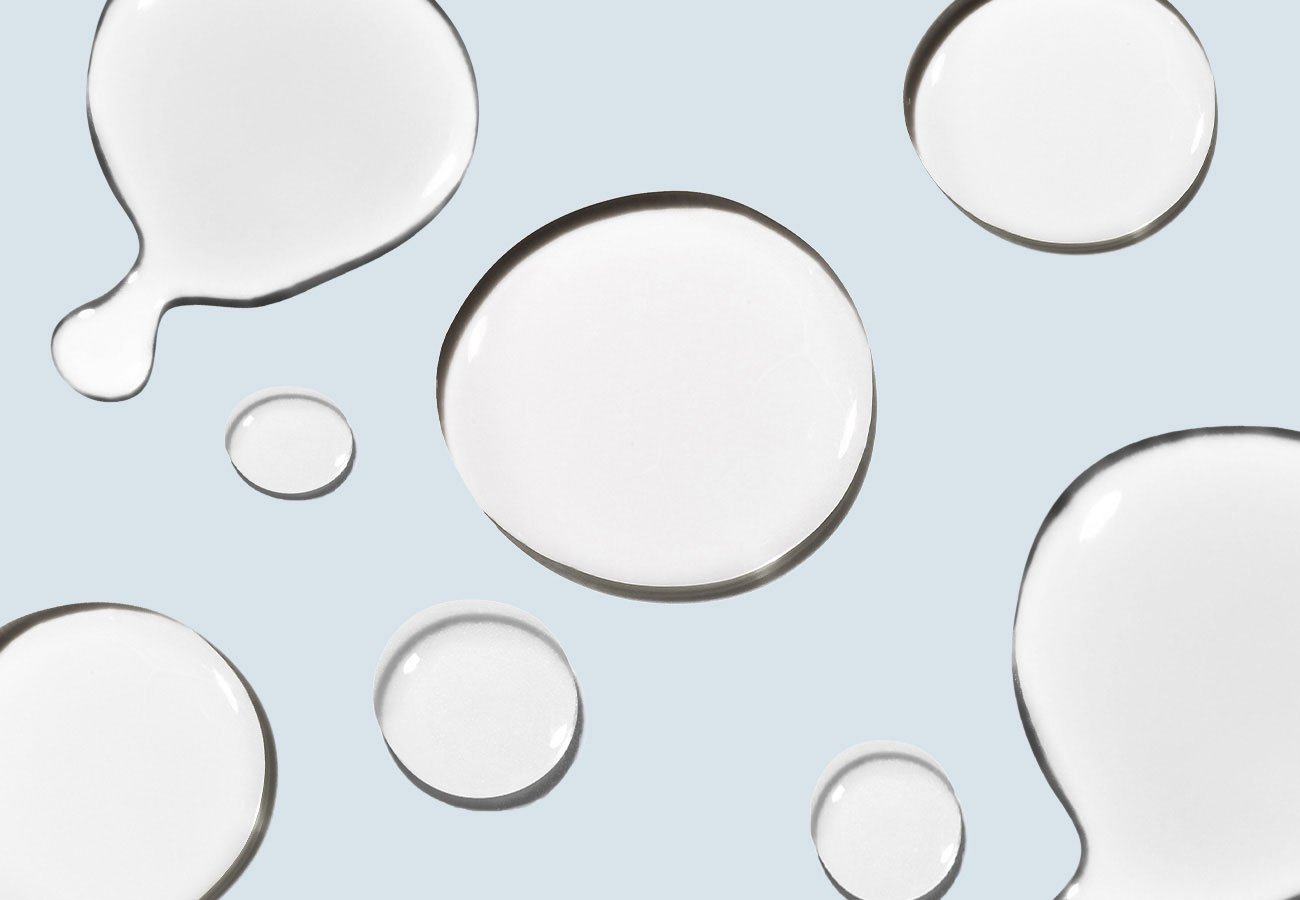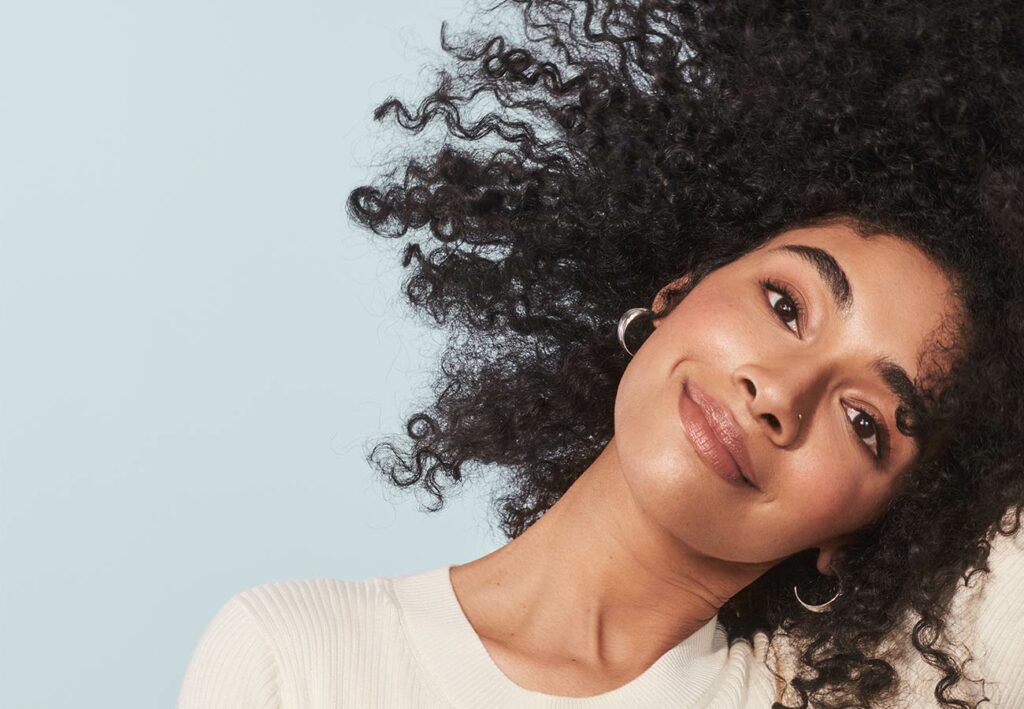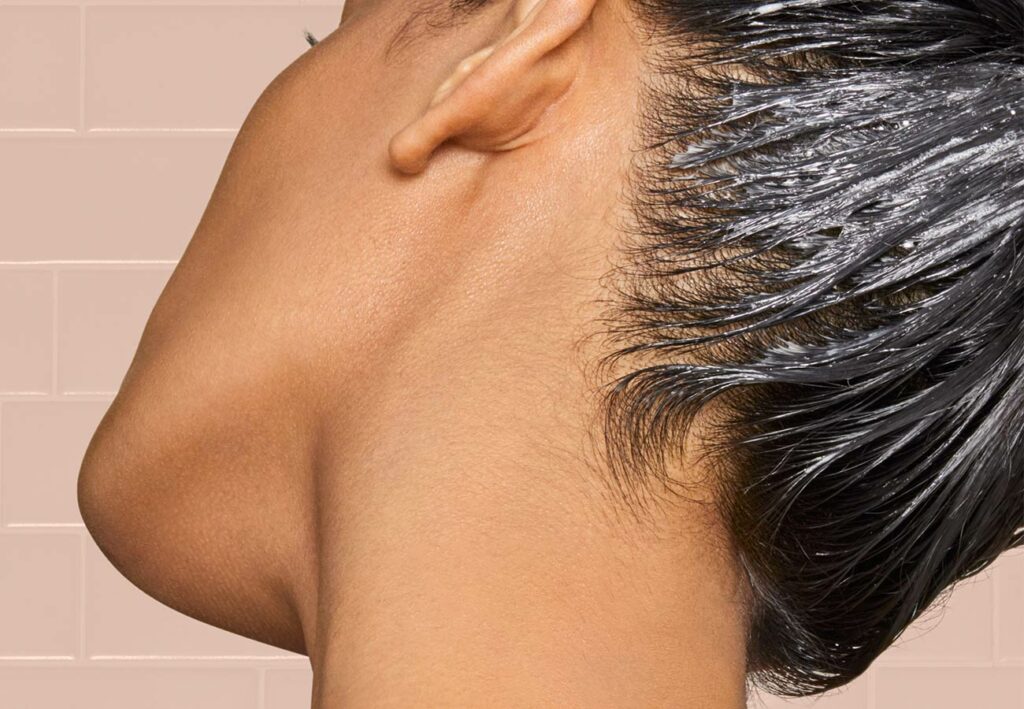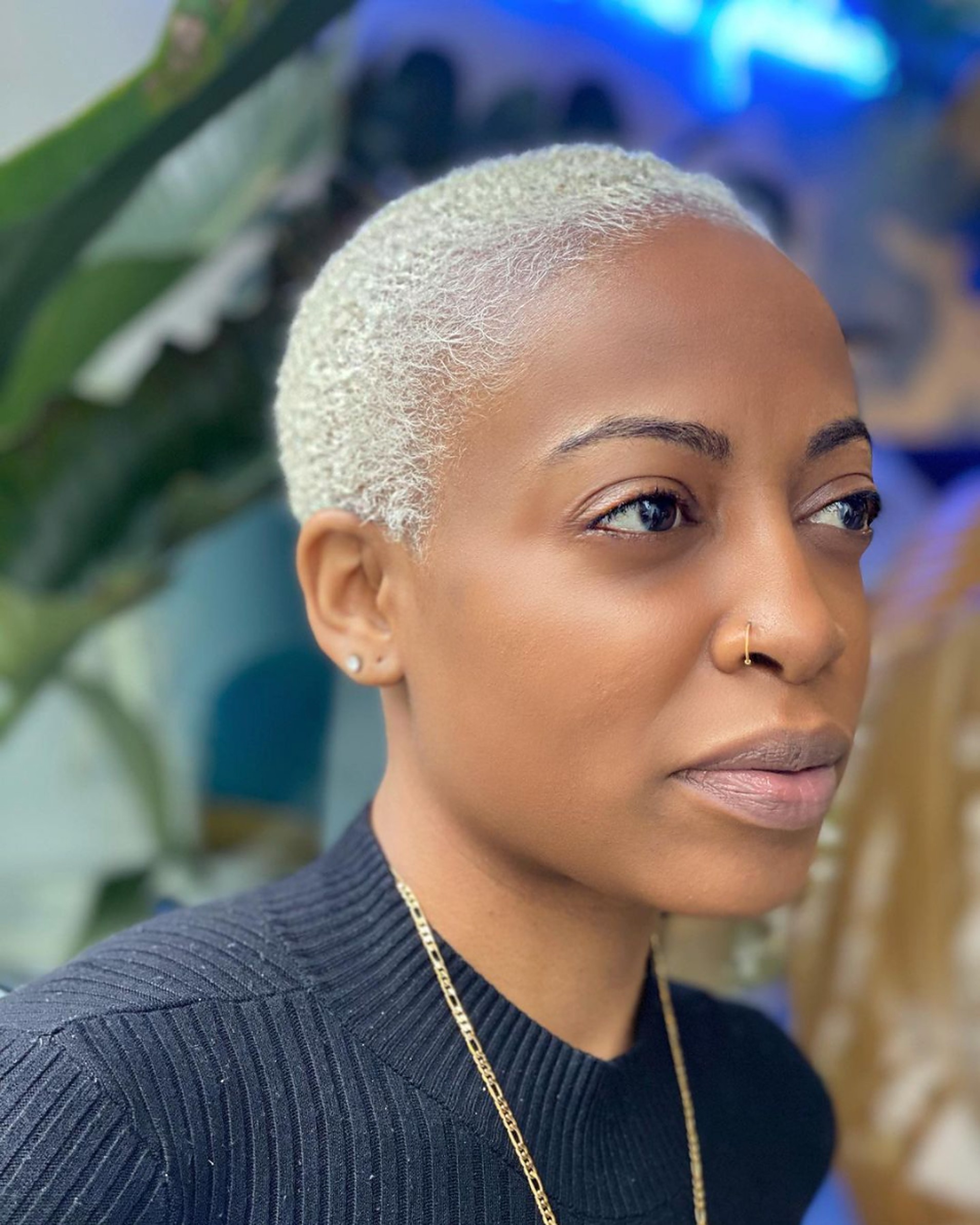Where does panthenol come from?
Panthenol is a provitamin made from pantothenic acid, which itself is Vitamin B5. (Provitamins are converted by the body into the functional, familiar vitamin with which they share a name.) Vitamin B5/pantothenic acid is found in nearly all living organisms, so it’s extremely easy to come across, and to manufacture synthetically. (Thus, panthenol is also commonly synthesized, which is how we at Prose obtain our panthenol). You can find the ingredient in two different forms: as an oil or a powder. It can be ingested or applied topically, and is then converted back into pantothenic acid by the body.
When used in cosmetic and care products, panthenol is an emollient, which helps soften products (and which later helps condition and soften its target, be it skin or hair). It also has humectant properties to help attract hydration to the targeted area.
Here are pro-vitamin B5’s primary benefits for hair, scalp, and skin.
Benefits of panthenol for hair
Imagine any of the commercials for hair care products enriched with panthenol: You see beautiful, smooth, shiny, strong hair. That’s because panthenol plays a key role in all of these attributes.
For starters, panthenol helps seal off the cuticle of each strand, to smooth hair overall, and helps to prevent things like frizzing, splitting, and fraying. Panthenol attracts moisture into the strands (the humectant properties at work), and then prevents that same moisture from escaping.
This panthenol coat is glossy, too, which gives hair that beautiful, shiny quality. But this shield is far from hefty: It helps build body, and definition in the hair without adding bulk (unlike how many thickening ingredients will add a tangible, weighty film to each strand). In this way, panthenol won’t contribute to any tangling and knotting, making it equally friendly to curly and coily strands. By not weighing the hair down, it still supports natural movement and buoyancy.
Because panthenol is water soluble, it rinses cleanly from the strands and won’t build up in the hair or on the scalp.
Benefits of panthenol for scalp
One of panthenol’s most touted benefits is its ability to soothe the scalp as well as calming properties that help to mitigate irritation, flaking, swelling, redness, and itching. The balanced scalp environment is beneficial for hair growth, since primary obstacles to healthy growth (like irritation, flaking, and redness) have been eliminated.
Benefits of panthenol for skin
In skincare, panthenol has the aforementioned nourishing and moisturizing properties, so pro-vitamin B5 is used to help keep skin firm and resilient. Most skincare products with panthenol will summon the ingredient for its ability to restore and fortify barrier lipids and skin barrier functions. Panthenol’s calming property also makes it a potential savior for individuals with sensitive skin who are prone to redness and irritation.
Other names for panthenol
While ‘panthenol’ and ‘pro-vitamin B5’ are its most common names, you might see other terms used on ingredient labels. ‘Dexpanthenol’ is the next most common, followed by ‘D-pantothenyl alcohol’ and ‘alcohol analog of pantothenic acid’. If you see ‘D-Panthenol’ listed, then it’s the liquid form of panthenol, while ‘DL-Panthenol’ is the powder form.
But don’t mistake panthenol for pantothenic acid or Vitamin B5, even if they are a means to the same end. Yes, the body will convert panthenol back into pantothenic acid (or in other terms, it will convert pro-vitamin B5 into vitamin B5). It’s all a matter of technicality; you can eat a salad and get Vitamin B5 but not panthenol; just as you can apply a shampoo with panthenol instead of Vitamin B5. It’s all good for you, but for the sake of reading nutrition and ingredient labels, you can note which form of the benefits you’re receiving.
Which foods contain Vitamin B5?
By ingesting foods that are rich in Vitamin B5, you allow the body to perform many of panthenol’s benefits naturally—though topical treatments deliver a significant, targeted boost. Foods rich in pantothenic acid/Vitamin B5 include beef, chicken breast, fish, pork, eggs, avocado, dairy milk, peanuts, seeds, lentils, brown rice, sweet potatoes, and mushrooms. Diets high in the ingredient get a metabolic boost, and cholesterol levels can decrease significantly.
Which Prose products contain panthenol?
You’ll find panthenol among the possible ingredients in Prose’s custom pre-shampoo scalp mask as well as our shampoo. If your formula calls for extra strand hydration and scalp soothing properties, then you can bet we included panthenol/pro-vitamin B5 in your regimen.
Always made to order. Never made to waste.
Exclusive Trial Offer Get 60% Off + Free Gift







